17 Homemade Face Packs For Dry Skin
Nourish your skin with the goodness of natural ingredients and reveal a flawless face.
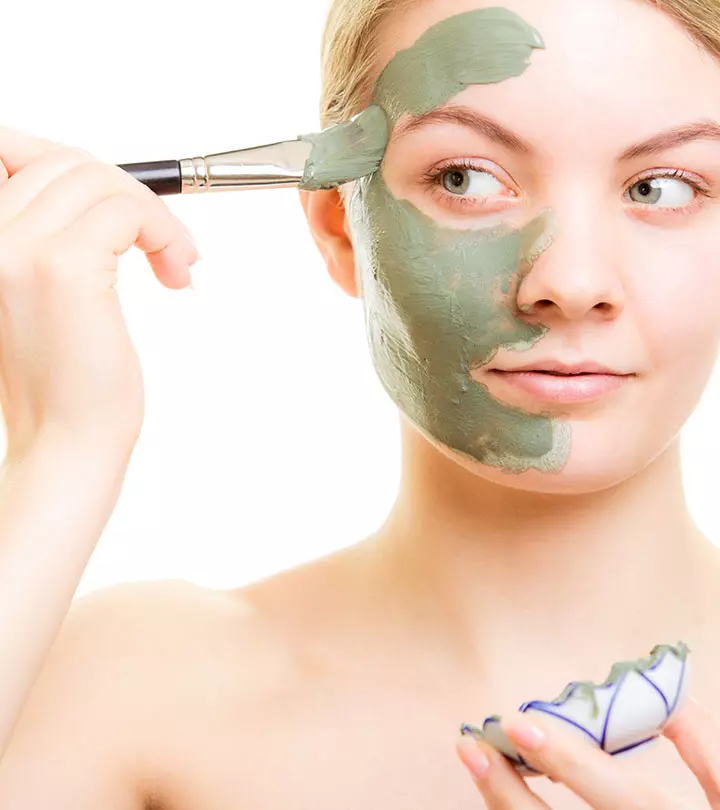
Image: Shutterstock

Dry patches and flakiness are some of the typical issues that people with dry skin come across now and then. However, with specialized ingredients present in face packs for dry skins, you can maintain the otherwise tedious health of your skin.
While intense moisturization, toning, and exfoliation can offer many benefits, face packs for dry skin in winter (or anytime your skin feels especially dry) can work wonders when used alongside them. They have the ability to lock in moisture and make your skin look healthy and flawless. And when you use natural and homemade masks, you can give your skin the love that it deserves.
So, if you are frustrated after using a ton of moisturizers to keep your skin glowy but with no sign of the desired results, try these packs that you can easily make yourself at your house. With a few ingredients from the kitchen, you will be able to prepare these masks in minutes. Scroll down to learn more!
In This Article
Homemade Face Packs For Dry Skin
- Cucumber Face Pack
- Chandan Face Pack
- Egg Yolk Face Pack
- Banana Face Pack
- Watermelon Face Pack
- Rose Petals Face Pack
- Multani Mitti Face Pack
- Orange Juice Face Pack
- Aloe Vera Face Pack
- Rice Flour Face Pack
- Almond Face Pack
- Curd Face Pack
- Turmeric Face Pack
- Cocoa Face Pack
- Avocado Face Pack
- Onion Mask
- Strawberry Fruit Pack
Say Goodbye To Dry Skin With These Face Masks
1. Cucumber Face Pack For Dry Skin
Cucumber gives skin a cooling and hydrating effect, making it soft and supple
. It is also very soothing for the itching sensation, which is often seen with dry skin (1).
You Will Need
- ½ cucumber
- 1 tablespoon sugar
What You Have To Do
- Peel and mash the cucumber.
- Add sugar to this and refrigerate it for some time.
- Apply it on the face and leave it on for 10 minutes.
- Rinse it off with cold water.
How Often You Should Do This
Apply this face pack twice a week.
2. Chandan Face Pack For Dry Skin
Sandalwood is known as Chandan in the Indian subcontinent. It is excellent for treating dry patches, flakiness, and irritation on the skin. This is one of the best home remedies for dry skin on the face and can also aid in an improvement in skin tone and texture (2).
You Will Need
- 1 tablespoon sandalwood powder (Chandan)
- ¼ teaspoon coconut oil
- 1 tablespoon rose water
What You Have To Do
- Mix everything and apply it on the face.
- Leave it on for 15 minutes.
- Wash the pack off with cool water.
How Often You Should Do This
This pack can be applied up to thrice a week.
 Quick Tip
Quick Tip3. Egg Yolk Face Pack For Dry Skin
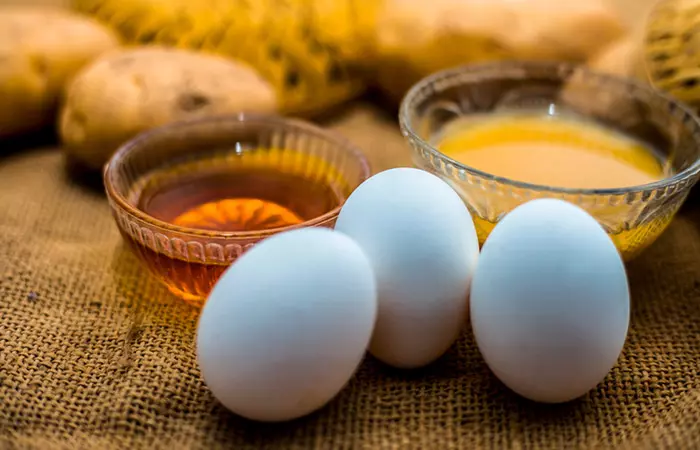
While egg white is beneficial to get rid of excess oiliness from the skin, the yolk can be used for the opposite effect. It is full of moisturizing fats that hydrate and nourish the dry skin (3). To prevent acne, you may also combine 2 teaspoons of tea tree oil. You could also use melted shea butter instead of honey for dry skin.
You Will Need
- 1 egg yolk
- teaspoon honey
What You Have To Do
- Beat the egg yolk along with the honey until they are thoroughly blended together.
- Apply this on the face and let it dry naturally for 10-15 minutes.
- Rinse it off with water.
How Often You Should Do This
Use this face pack once or twice a week.
Lilly, a beauty, makeup, and skin care blogger, reveals in one of her blog posts that an egg yolk and honey mask is the best wintertime solution for her dry skin woes. “I like to apply this mask once a week and my skin is loving it so far (i),” she says, as she mentions how it leaves her skin moisturized and as soft as a baby’s bottom.
4. Banana Face Pack For Dry Skin
Banana has moisturizing, anti-wrinkle, and anti-aging properties (4). Honey and olive oil are emollients that can deeply moisturize and condition your skin (5), (6). The natural sebum production by the skin can be easily regulated with this face pack.
You Will Need
- 1/2 ripe banana
- 1 tablespoon honey
- 1 teaspoon olive oil
What You Have To Do
- Mix all the ingredients to make a smooth paste.
- Apply all over the face and rinse with water after 10 minutes.
Alternative Method
Add a teaspoon of almond oil and two drops of vitamin E oil to two teaspoons of banana puree. You may also add 2 teaspoons of chamomile tea powder to refresh your skin. Follow the application procedure as given above.
How Often You Should Do This
Repeat the application of this pack once every week.
5. Watermelon Face Pack For Dry Skin
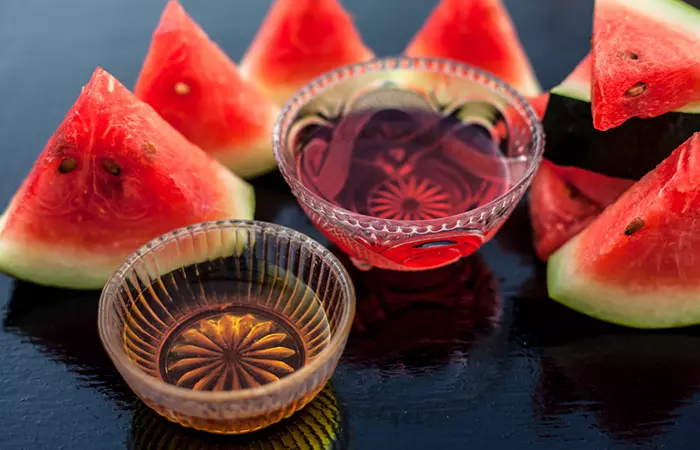
With its high water content, watermelon becomes favorable for use on dry skin. The lycopene present in watermelon also protects your dry skin from UV damage (7).
The following graph is taken from a 2025 study published in Current Developments in Nutrition that evaluated the difference in serum lycopene levels in participants before and after having 100% watermelon juice. Participants were given pasteurized watermelon juice twice a day for four weeks. Across the board, the intake of watermelon juice significantly increased lycopene levels in the body. Learn more by examining the graph below.

Serum Lycopene Concentration After 100% Watermelon Juice Intake
Source: Variation of Serum Lycopene in Response to 100% Watermelon Juice: An Exploratory Analysis of Genetic Variants in a Randomized Controlled Crossover StudyThe honey helps to lock in moisture being provided by the watermelon. This delicious fruit also repairs your skin that has been damaged, especially due to oxidative stress. However, more scientific studies are required to know the benefits of watermelon for dry skin.
You Will Need
- 1 tablespoon watermelon juice
- 1 tablespoon honey
What You Have To Do
- Extract fresh watermelon juice and add honey to it.
- Mix them together and apply on the face.
- Leave this on for about 20 minutes and then wash it off.
How Often You Should Do This
Depending on how your skin is responding to this face pack, you can use it up to thrice a week.
6. Rose Petals Face Pack For Dry Skin
Rose petals have anti-inflammatory properties that help soothe dry skin (8). They have been used traditionally as a skincare remedy for years (9). Oats have a moisturizing effect on dry skin (10).
You Will Need
- 1 rose flower
- 1 teaspoon ground oats
- Water
What You Have To Do
- Take the rose petals and crush them gently.
- Add the oats to this along with enough water to get a paste of medium consistency.
- Apply the face pack and keep it on for 10-15 minutes.
- Once it has dried, wash it off.
For added benefits, wipe your skin with a cotton pad or cotton ball soaked in rose water.
How Often You Should Do This
Do this once a week.
7. Multani Mitti Face Pack For Dry Skin
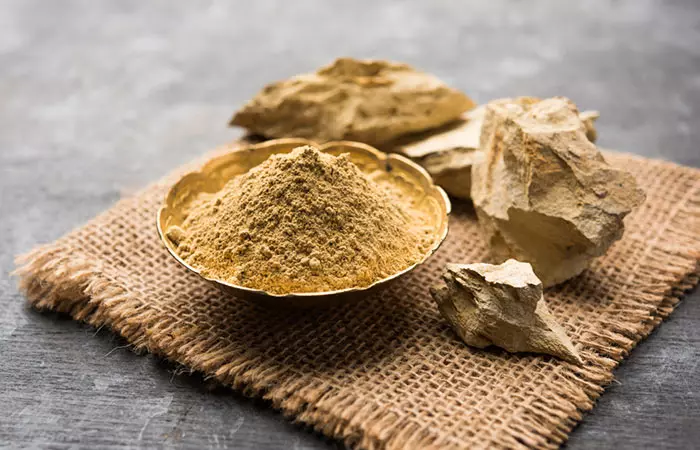
Fuller’s earth or Multani mitti is often used in oily skin face packs. But, do not hesitate to use it on dry skin along with honey, which is moisturizing. Multani mitti improves blood circulation (11). Therefore, this clay mud mask could provide more nutrition and hydration to dry skin.
You Will Needs
- 1-2 tablespoons Multani mitti
- 1 tablespoon honey
- Water
What You Have To Do
- Add honey to the Multani mitti powder and mix well.
- Add some water to get the right consistency of the paste.
- Apply all over the face and let it sit for about 10 minutes.
- Rinse it off with water.
How Often You Should Do This
Use this face pack once a week.
8. Orange Juice Face Pack For Dry Skin
Orange juice acts as a skin toner. It also contains vitamin C. Vitamin C helps repair the skin, diminish wrinkles, reverse free radical damage, and increase collagen production. It also enhances the production of barrier lipids and prevents water loss from the skin, thus treating dry skin (12).
You Will Need
- 2 tablespoons orange juice
- 1-1 ½ tablespoons oatmeal
What You Have To Do
- Combine the oatmeal with the orange juice and apply on the face.
- Wash off the face pack after 15 minutes.
How Often You Should Do This
Apply this face pack once a week.
 Quick Tip
Quick Tip9. Aloe Vera Face Pack For Dry Skin
Aloe vera hydrates and rejuvenates the skin. It has antioxidant, anti-inflammatory, healing, and moisturizing properties (13). Your skin will not only be moisturized after using this pack, but it will also be glowing and radiant.
You Will Need
- 2 tablespoons fresh aloe vera gel
- 1 teaspoon honey
- 1 tablespoon sandalwood powder (optional)
What You Have To Do
- Mix all the ingredients well.
- Apply on the face and leave it on for 15 minutes.
- Rinse it with warm water.
How Often You Should Do This
This face pack can be applied twice a week.
10. Rice Flour Face Pack For Dry Skin
The grainy texture of rice flour helps remove the dead skin cells and get rid of the flakiness on dry skin. Rice starch also has the ability to improve skin barrier function, which can soothe irritated dry skin (14). You can add 2 drops of lavender essential oil for a soothing fragrance.
You Will Need
- 1 tablespoon rice flour
- 1 tablespoon oatmeal
- 2 teaspoons honey
What You Have To Do
- Combine the rice flour, oatmeal, and honey together.
- Apply this on the skin.
- Let it sit for 15-20 minutes before washing it off with water.
How Often You Should Do This
Apply this face pack once or twice a week depending on how dry your skin is.
11. Almond Face Pack For Dry Skin
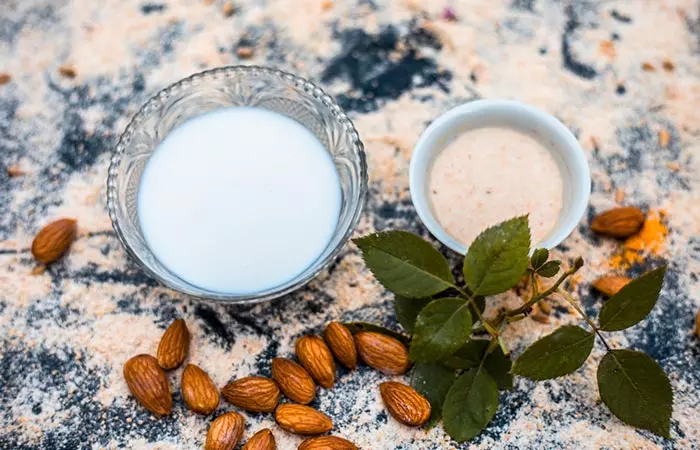
Almonds rejuvenate and hydrate your skin thoroughly. They also improve your complexion and skin tone (15). Oats moisturize the skin, and the yogurt tightens it making it soft and supple.
You Will Need
- 5-6 almonds
- 1 tablespoon oatmeal
- 2 teaspoons yogurt
- ½ teaspoon honey
What You Have To Do
- Soak the almonds overnight and grind them along with the other ingredients to get a smooth paste.
- Apply the face pack and rinse your face after 15 minutes.
How Often You Should Do This
Repeat this once every 3-4 days.
12. Curd Face Pack For Dry Skin
Here is one of the most popular face packs for dry skin in the summer months! Yogurt is rich in healthy natural fats and skin exfoliating acids. These acids get rid of the dry and flaky skin, and the fats moisturize the skin. Yogurt also brightens your skin (16).
You Will Need
- 2 tablespoons yogurt (curd)
- 1 tablespoon honey
- A pinch of turmeric
What You Have To Do
- Mix all the ingredients to make a smooth paste and apply it all over the face.
- Rinse it after 20 minutes.
How Often You Should Do This
This pack can be applied twice a week.
13. Turmeric Face Pack For Dry Skin
The antioxidant and anti-inflammatory properties of turmeric can revamp your dry skin and restore its natural suppleness and glow (17).
You Will Need
- 2 teaspoon milk
- A pinch of turmeric
- Cotton ball
What You Have To Do
- Mix the turmeric in the milk.
- Apply this on the face using the cotton ball.
- Leave it on for about 10 minutes and then rinse it off.
How Often You Should Do This
Do this once every 2-3 days.
Caution
If you are allergic to dairy, do not use this face pack.
14. Cocoa Face Mask For Dry Skin
The antioxidant and anti-inflammatory properties of cocoa freshen dry, dull, and tired-looking skin. It invigorates the skin and gives it a natural glow (18). The coconut milk in this face pack is extremely moisturizing for dry skin (19).
You Will Need
- 1/2 tablespoon cocoa powder
- 1/2 tablespoon honey
- 1 teaspoon oatmeal or besan
- 2 teaspoons coconut milk
What You Have To Do
- Mix all the ingredients to make a smooth paste.
- Apply it on the face and wash it off after 10-12 minutes.
How Often You Should Do This
Use this face pack once a week.
15. Avocado Face Pack For Dry Skin
Avocado is incredibly nourishing and nutritious for dry skin. It is full of healthy fats that have a wonderful moisturizing and collagen-boosting effect on the skin (20), (21).
You Will Need
- 2 teaspoons mashed avocado
- 1 teaspoon honey
- 1 teaspoon rose water
What You Have To Do
- To the mashed avocado, add the honey and rose water.
- Mix everything together and apply on the face.
- Keep this on for 10 minutes and then rinse it off with lukewarm water.
How Often You Should Do This
This face pack should be applied once a week.
16. Onion Mask For Dry Skin
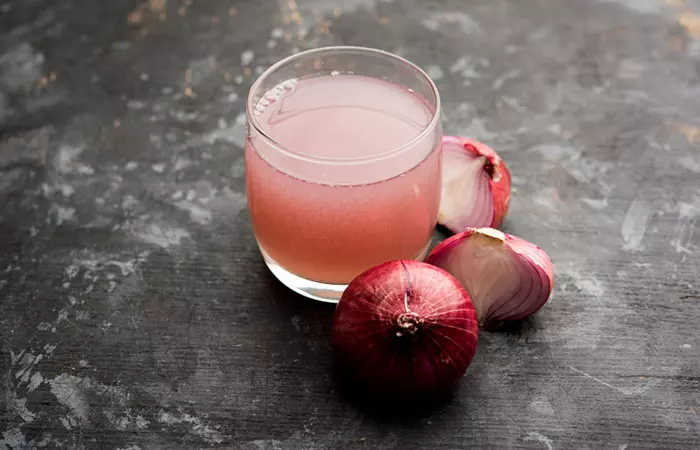
This face pack is excellent for dry skin in the hot summer months. Onion juice soothes the skin, removes the dead and dry skin cells, eliminates scars and blemishes, and hydrates your skin (22), (23). However, more scientific studies are needed to prove these benefits.
Note: Onions can leave a pungent smell on the skin. If you wish to avoid it, add a few drops of essential oil to this pack.
You Will Need
- 2 teaspoons onion juice
- 1 tablespoon honey
What You Have To Do
- Combine the ingredients together and apply liberally on the face.
- Wash this off after 10 minutes.
How Often You Should Do This
Repeat the application of this face pack once in every 4-5 days.
17. Strawberry Fruit Pack For Dry Skin
The vitamin C content of strawberries can help get rid of the dryness (12). It is also good for reducing wrinkles, brightening up the complexion, and protecting your skin from UV rays (24).
You Will Need
- 2-3 ripe strawberries
- 1 tablespoon honey
- 1 teaspoon oatmeal
- Water
What You Have To Do
- Mash the strawberries and then add honey, oatmeal, and some water to it.
- Get a paste of medium consistency and apply this on the face.
- Let it sit for about 15 minutes.
- Wash it off with cool water.
How Often You Should Do This
Apply this fruit pack up to twice a week.
Besides the benefits of the ingredients discussed here, there are a few other positives of using homemade face packs for dry skin. Read on to learn more.
Key Takeaways
- A cucumber face pack cools and hydrates dry skin, making it soft, moisturized, and supple.
- An onion face pack soothes the skin and removes dead and dry skin cells.
- An almond face pack rejuvenates and hydrates the skin thoroughly.
- A rice water face pack removes dead skin cells and flakiness on dry skin.
Benefits Of Homemade Face Packs For Dry Skin
- Homemade face packs use simple, natural ingredients that are free from harsh chemicals, making them gentle on dry skin.
- They are affordable, using everyday items like honey, yogurt, or oatmeal, saving you money on expensive skincare products.
- You can adjust the ingredients based on your skin’s needs, ensuring the face pack targets your specific dryness concerns.
- Homemade packs provide deep hydration and nourishment, helping to lock in moisture and soothe dry, flaky skin.
- These DIY face packs made without preservatives or artificial fragrances minimize the risk of irritation or allergic reactions.
Many claim drinking enough water daily, along with using these face packs, can also help hydrate dry skin. But, does it really work? Read on to know more.
Does Drinking Water Help Dry Skin?
Yes, staying properly hydrated may help improve dry skin. Water is essential for overall skin health as it keeps the cells hydrated and functioning optimally. When your body is well-hydrated, it helps maintain the skin’s natural moisture balance. Dehydrated skin is more prone to dryness, flakiness, and irritation. Drinking water may also support the skin’s ability to flush out toxins, promoting a clearer complexion. Research suggests that drinking water can positively impact skin health (25). However, while staying hydrated is important, it’s equally crucial to complement this with a good skin care routine that includes moisturizing, using gentle cleansers, and protecting the skin from harsh environmental factors, especially in dry or cold weather conditions.
To get the best results of using these homemade packs, it is important to use them the right way. Keep reading to learn a few tips regarding the usage.
Skincare Tips For Using Face Packs
- Always start with clean skin to help ingredients absorb better.
- Apply the face pack evenly for consistent treatment.
- Avoid the sensitive eye area to prevent irritation.
- Leave the pack on for the recommended time to avoid dryness.
- Rinse off and follow up with a moisturizer to lock in hydration.
- Use a face pack once or twice a week for best results.
Infographic: Top DIY Face Packs For Dry Skin
Do you only experience dryness only in the winter or is your skin constantly dry all year? Following a skincare regimen designed specifically for your skin type is crucial to keep your skin hydrated. The best method to address dry skin issues is with hydrating face packs.
Read the infographic below to learn about the top face masks for dry skin you can use right now.
Some thing wrong with infographic shortcode. please verify shortcode syntax
There are so many different ingredients and so many combinations that can be prepared with them to soothe your skin and get rid of dryness. These different ways to moisturize your skin can be beneficial when followed in the correct manner. However, if you have not used any of these ingredients before, it is best to conduct a small patch test before applying that particular ingredient to your face. As they say, it is better to be safe than sorry.
Frequently Asked Questions
Is a saffron and milk cream face pack good for dry skin?
Dr. Anna Chacon, MD, FAAD, a board-certified dermatologist, says, “Saffron is a popular skin care component in Ayurveda and with good reason. Saffron brightens, nourishes, and heals dry and irritated skin, while milk cream deeply moisturizes the skin. They work together to restore dull and dry skin to its former splendor.”
Is a glycerin and honey face pack good for dry skin?
Dr. Chacon says, “It heals dryness and gives us beautiful, glowing skin in a variety of ways. It possesses humectant characteristics, which means it absorbs moisture from the air and assists in alleviating dry and dull spots on your skin.”
What kind of mask is good for dry skin?
Hydrating masks made from ingredients that can soothe, nourish, and deeply moisturize the skin and fade fine lines and wrinkles are good for dry skin.
Is coffee mask good for dry skin?
Yes, coffee masks can be good for dry skin as coffee grounds can help exfoliate the skin, removing flakiness, and simultaneously boost collagen levels and reduce free radical damage.
Illustration: Homemade Face Packs For Dry Skin

Image: Stable Diffusion/StyleCraze Design Team
Take a look at this video on how to incorporate this banana face pack into your routine! It’s easy to make and great for nourishing your skin.
Personal Experience: Source
StyleCraze's articles are interwoven with authentic personal narratives that provide depth and resonance to our content. Below are the sources of the personal accounts referenced in this article.
i. The perfect winter time face mask!https://lillynlilly.wordpress.com/2015/12/04/the-perfect-winter-time-face-mask/
References
Articles on StyleCraze are backed by verified information from peer-reviewed and academic research papers, reputed organizations, research institutions, and medical associations to ensure accuracy and relevance. Read our editorial policy to learn more.
- Phytochemical and therapeutic potential of cucumber, Fitoterapia, US National Library of Medicine, National Institutes of Health.
https://pubmed.ncbi.nlm.nih.gov/23098877/ - Sandalwood Album Oil as a Botanical Therapeutic in Dermatology, The Journal of Clinical and Aesthetic Dermatology, US National Library of Medicine, National Institutes of Health.
https://www.ncbi.nlm.nih.gov/pmc/articles/PMC5749697/ - Hen egg yolk oil: A potential source of bioavailable lutein and zeaxanthin for skin and sun protection, World Journal of Pharmaceutical Sciences, Academia.
https://www.academia.edu/31039309/Hen_egg_yolk_oil_A_potential_source_of_bioavailable_lutein_and_zeaxanthin_for_skin_and_sun_protection - Poly herbal formulation with anti-elastase and anti-oxidant properties for skin anti-aging, BMC Complementary and Alternative Medicine, US National Library of Medicine, National Institutes of Health.
https://www.ncbi.nlm.nih.gov/pmc/articles/PMC5789588/ - Anti-Inflammatory and Skin Barrier Repair Effects of Topical Application of Some Plant Oils, International Journal of Molecular Sciences, US National Library of Medicine, National Institutes of Health.
https://www.ncbi.nlm.nih.gov/pmc/articles/PMC5796020/ - Medicinal and cosmetic uses of Bee’s Honey – A review, Ayu, US National Library of Medicine, National Institutes of Health.
https://www.ncbi.nlm.nih.gov/pmc/articles/PMC3611628/ - Discovering the link between nutrition and skin aging, Dermato-endocrinology, US National Library of Medicine, National Institutes of Health.
https://www.ncbi.nlm.nih.gov/pmc/articles/PMC3583891/ - Skin anti‐inflammatory activity of rose petal extract (Rosa gallica) through reduction of MAPK signaling pathway, Food Science & Nutrition, US National Library of Medicine, National Institutes of Health.
https://www.ncbi.nlm.nih.gov/pmc/articles/PMC6261181/ - Pharmacological Effects of Rosa Damascena, Iranian Journal of Basic Medical Sciences, US National Library of Medicine, National Institutes of Health.
https://www.ncbi.nlm.nih.gov/pmc/articles/PMC3586833/ - Safety and efficacy of personal care products containing colloidal oatmeal, Clinical, Cosmetic and Investigational Dermatology, US National Library of Medicine, National Institutes of Health.
https://www.ncbi.nlm.nih.gov/pmc/articles/PMC3508548/ - Formulation And Evaluation Of Cosmetic Herbal Face Pack For Glowing Skin, International Journal of Research in Ayurveda and Pharmacy.
https://www.ijrap.net/admin/php/uploads/1887_pdf.pdf - The Roles of Vitamin C in Skin Health, Nutrients, US National Library of Medicine, National Institutes of Health.
https://www.ncbi.nlm.nih.gov/pmc/articles/PMC5579659/ - Aloe Vera: A Short Review, Indian Journal of Dermatology, US National Library of Medicine, National Institutes of Health.
https://www.ncbi.nlm.nih.gov/pmc/articles/PMC2763764/ - Effect of Rice Starch as a Bath Additive on the Barrier Function of Healthy but SLS-damaged Skin and Skin of Atopic Patients, Acta Dermato-venereologica, US National Library of Medicine, National Institutes of Health.
https://pubmed.ncbi.nlm.nih.gov/12353708/ - The uses and properties of almond oil, Complementary Therapies in Clinical Practice, US National Library of Medicine, National Institutes of Health.
https://pubmed.ncbi.nlm.nih.gov/20129403/ - Clinical efficacy of facial masks containing yoghurt and Opuntia humifusa Raf. (F-YOP), Journal of Cosmetic Science, US National Library of Medicine, National Institutes of Health.
https://pubmed.ncbi.nlm.nih.gov/22152494/ - Beneficial role of curcumin in skin diseases, Advances in Experimental Medicine and Biology, US National Library of Medicine, National Institutes of Health.
https://pubmed.ncbi.nlm.nih.gov/17569219/ - Cocoa Bioactive Compounds: Significance and Potential for the Maintenance of Skin Health, Nutrients, US National Library of Medicine, National Institutes of Health.
https://www.ncbi.nlm.nih.gov/pmc/articles/PMC4145303/ - 3 The Chemical Composition and Biological Properties of Coconut (Cocos nucifera L.) Water, Molecules, US National Library of Medicine, National Institutes of Health.
https://www.ncbi.nlm.nih.gov/pmc/articles/PMC6255029/ - The effect of various avocado oils on skin collagen metabolism, Connective Tissue Research, US National Library of Medicine, National Institutes of Health.
https://pubmed.ncbi.nlm.nih.gov/1676360/ - Hass Avocado Composition and Potential Health Effects, Critical Reviews in Food Science and Nutrition, US National Library of Medicine, National Institutes of Health.
https://www.ncbi.nlm.nih.gov/pmc/articles/PMC3664913/ - Plants used to treat skin diseases, Pharmacognosy Reviews, US National Library of Medicine, National Institutes of Health.
https://www.ncbi.nlm.nih.gov/pmc/articles/PMC3931201/ - Flavonoids and Skin Health, Micronutrient Information Center, Linus Pauling Institute, Oregon State University.
https://lpi.oregonstate.edu/mic/health-disease/skin-health/flavonoids - Photoprotective potential of strawberry (Fragaria × ananassa) extract against UV-A irradiation damage on human fibroblasts, Journal of Agricultural and Food Chemistry, US National Library of Medicine, National Institutes of Health.
https://pubmed.ncbi.nlm.nih.gov/22304566/ - Palma L, Marques LT, Bujan J, Rodrigues LM. Dietary water affects human skin hydration and biomechanics. Clin Cosmet Investig Dermatol. US National Library of Medicine, National Institutes of Health.
https://www.ncbi.nlm.nih.gov/pmc/articles/PMC4529263/
Read full bio of Dr. Zeel Gandhi
- Dr. Anna Chacon, MD, FAAD, is a double board-certified dermatologist with over 7 years of experience. She has authored many peer-reviewed articles and managed clinical research studies during her fellowship. She completed her medical school in the PLME (Program of Liberal Medical Education) at Brown University.
 Dr. Anna Chacon, MD, FAAD, is a double board-certified dermatologist with over 7 years of experience. She has authored many peer-reviewed articles and managed clinical research studies during her fellowship. She completed her medical school in the PLME (Program of Liberal Medical Education) at Brown University.
Dr. Anna Chacon, MD, FAAD, is a double board-certified dermatologist with over 7 years of experience. She has authored many peer-reviewed articles and managed clinical research studies during her fellowship. She completed her medical school in the PLME (Program of Liberal Medical Education) at Brown University.
Read full bio of Kushneet Kukreja
Read full bio of Ramona Sinha
Read full bio of Swathi E







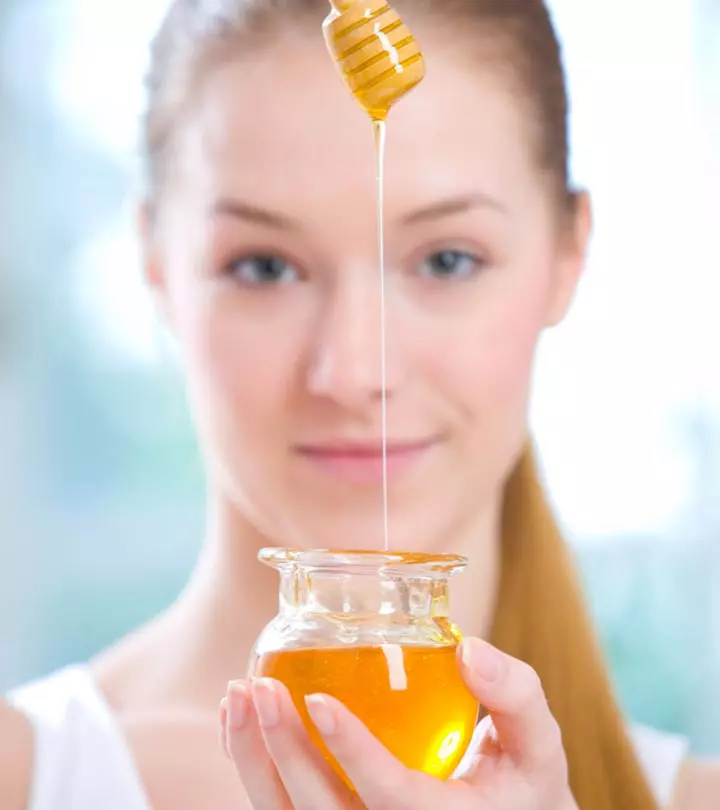
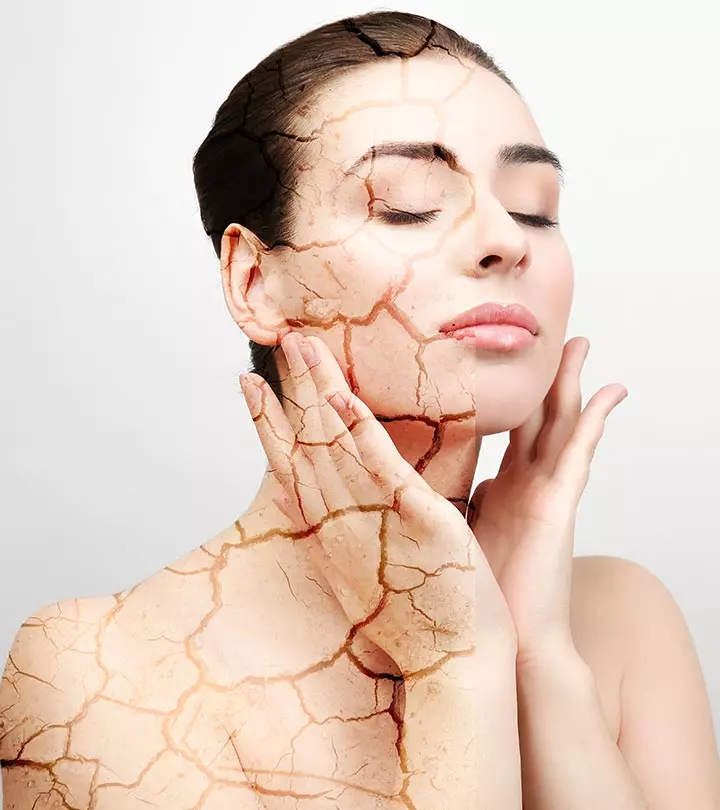


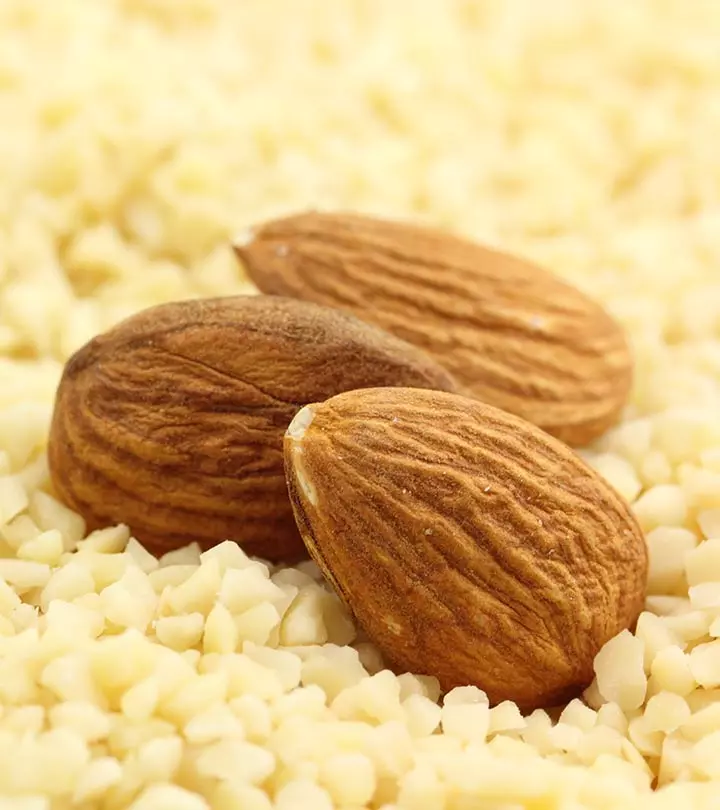
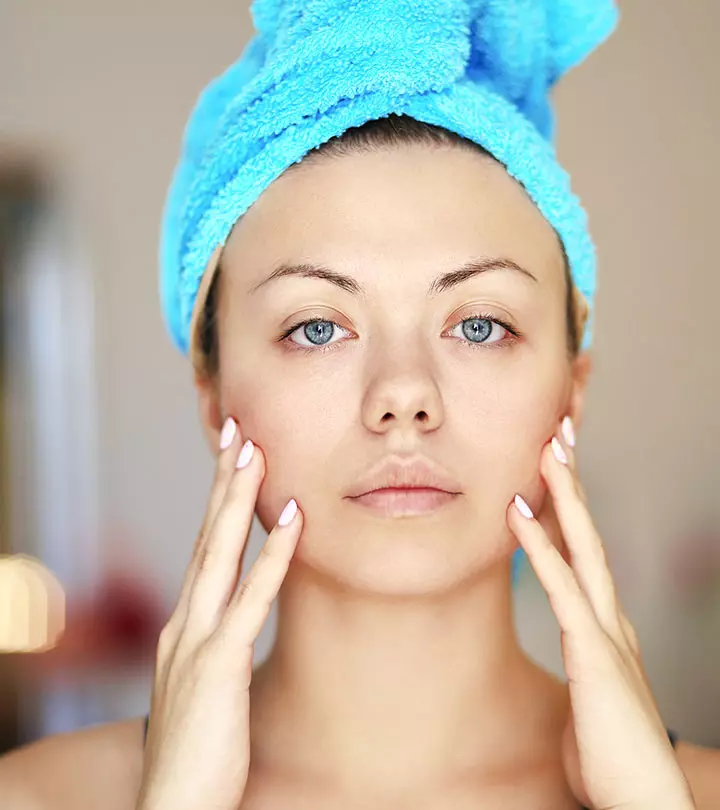
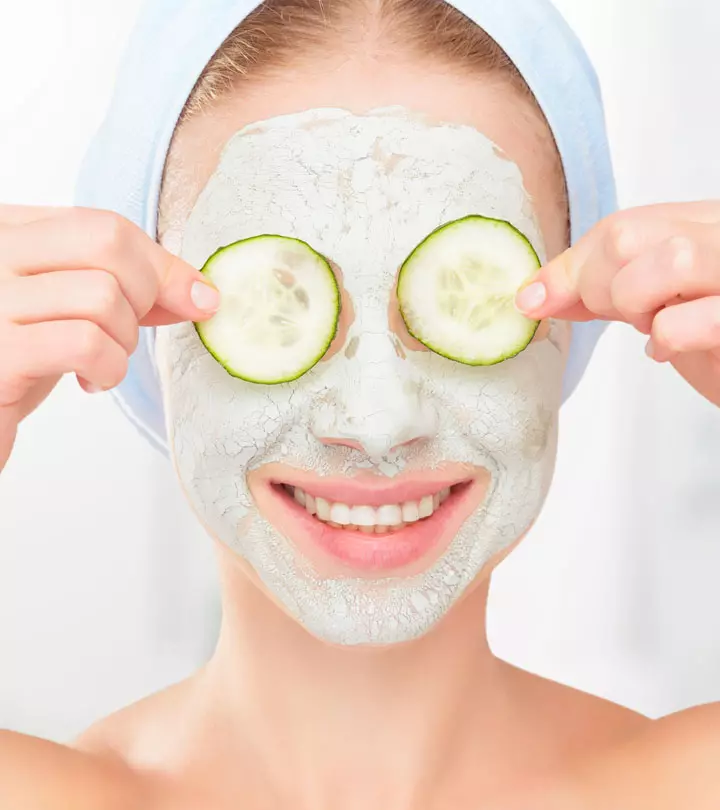
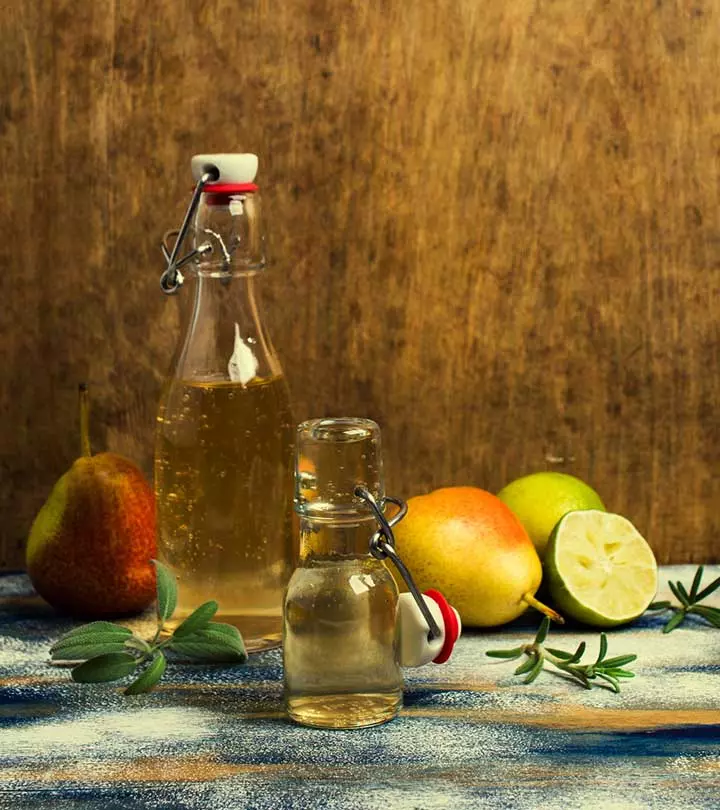
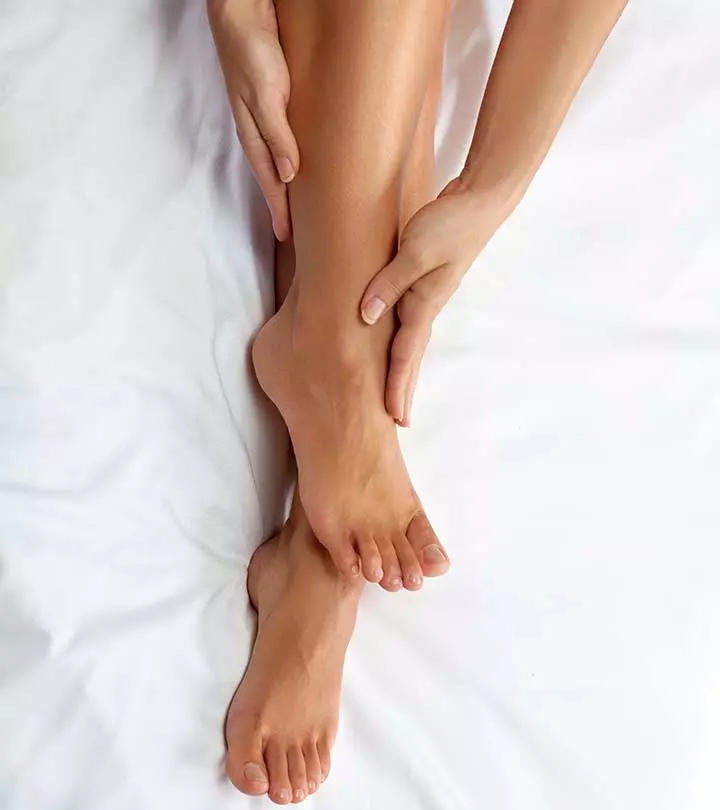



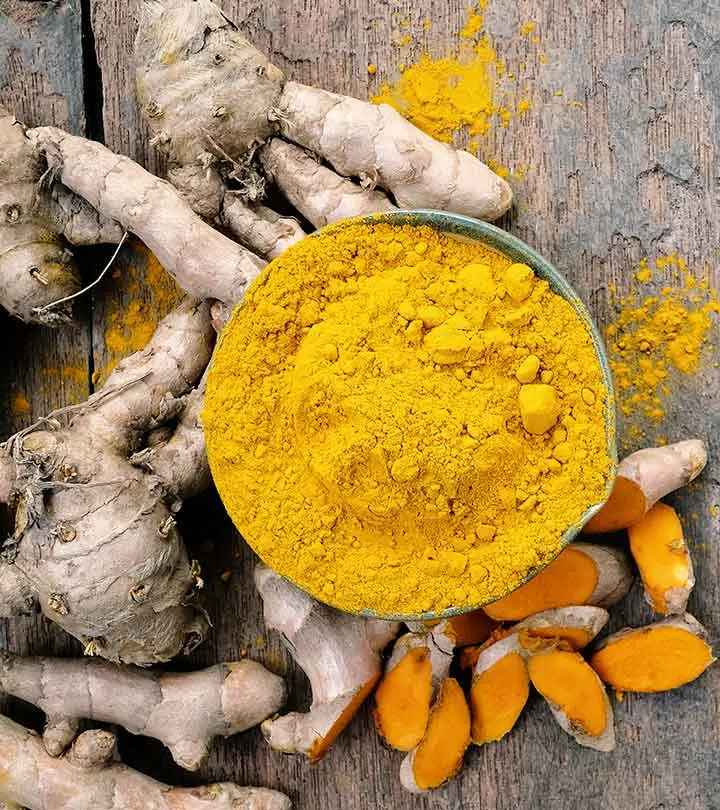






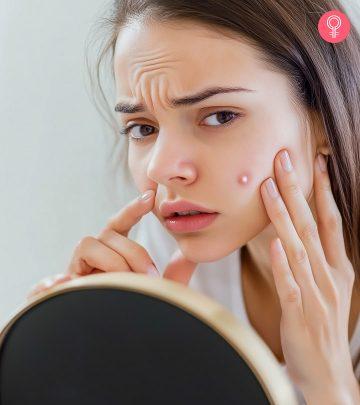

Community Experiences
Join the conversation and become a part of our empowering community! Share your stories, experiences, and insights to connect with other beauty, lifestyle, and health enthusiasts.